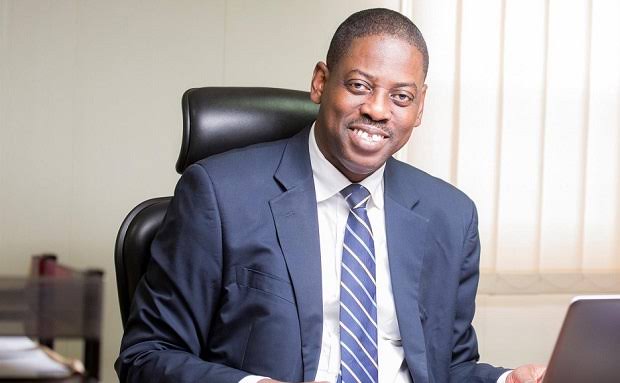A New 10-Year Master Plan Launched By Ghana SEC Has Huge Plans For Fintech, Venture Capital And Blockchain
The Securities and Exchange Commission (SEC) in Ghana, responsible for regulating the country’s financial markets, has launched its maiden Capital Market Master Plan (CMMP) to serve as the blueprint for the development of the capital market in Ghana for the next 10 years. The plan, if fully implemented, would significantly improve the country’s startup landscape, especially as it relates to fintech, venture capital, regulatory sandbox regime, the adoption of blockchain technology as well as crowdfunding.

“The Capital Market Master Plan forms part of Ghana’s efforts at building a robust and sustainable long-term financial market to anchor the country’s accelerated development goals of its real sector of the economy. It is aimed at charting the course and providing the blueprint to guide the development and growth trajectory of the capital market over a ten-year uninterrupted period,” Daniel Ogbarmey Tetteh, Director-General of Ghana’s Securities & Exchange Commission, about the blueprint.

Here Are A Few Of The Plans Especially As They Relate To Ghana’s Startup Landscape
On Fintech
The SEC says it would introduce:
- Regulatory Sandbox — for piloting innovative proposals and determining their impact and the appropriate regulatory approach within a safe space. The SEC says the partnership will make it easy for the regulator to deal adequately with associated risks such as the use, analysis and sale of customer data and increased systemic vulnerabilities.
- Digital platforms for retail trading — to incorporate within the capital markets the best practices and lessons learned from the application of Fintech in other sectors, particularly digital banking.
- Capital Market Fintech Meeting — quarterly/semi-annual meetings coordinated by SEC attended by Ghana Stock Exchange, Central Securities Depository (CSD) Ghana, selected market participants and Fintech companies in Ghana to discuss market needs and opportunities and regulatory obstacles to technological development within the market.
On Blockchain:
The SEC says it is exploring the usage of blockchain in the following:
- Clearing and Settlements — The accurate recording capabilities of blockchain may make current clearing and settlement procedures redundant, resulting in faster transactions and reduced costs for financial institutions; and
- Cross-border transactions — Transferring money across borders has traditionally been slow and expensive, since systems typically pass through multiple banks on the way to the payment’s final destination. Blockchain, can make the process faster, more accurate and less expensive.
On Crowdfunding
The SEC says it would develop clear regulations around crowdfunding, aimed at protecting public and informing decisions, without opening up riskier issuance risks.
On Venture Capital
The SEC states it would work with Ghana’s Attorney General, the Registrar General and the Ghana Revenue Authority, to fashion a framework that will enable private equity and venture capital to thrive in Ghana.
Read also:Ghanaian Government Says Crypto Transactions Are Illegal
It particularly notes in the plan that currently, Ghana does not have a limited-liability partnership structure. Thus private equity funds have to be structured as companies limited by shares. This, it notes, creates the following issues: (a) Taxation of management fees at the fund level instead of at the general partner level, (b) Taxation of the vehicle as a company instead of pass-through tax treatment, and (c ) Limited ability for payouts since standard companies cannot distribute in a way that impairs capital, which is not relevant in the case of a private equity fund.
To download the master plan, click here (.pdf).
Ghana SEC Blockchain fintech Ghana SEC Blockchain fintech
Charles Rapulu Udoh

Charles Rapulu Udoh is a Lagos-based lawyer who has advised startups across Africa on issues such as startup funding (Venture Capital, Debt financing, private equity, angel investing etc), taxation, strategies, etc. He also has special focus on the protection of business or brands’ intellectual property rights ( such as trademark, patent or design) across Africa and other foreign jurisdictions.
He is well versed on issues of ESG (sustainability), media and entertainment law, corporate finance and governance.
He is also an award-winning writer

